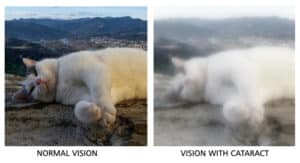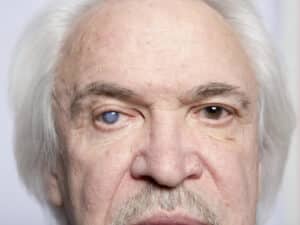Is your vision cloudy or foggy? These are some common signs of cataracts. Cataracts occur when the natural lens of the eye is no longer clear.
This happens when proteins in the lens start to clump together, making it harder to see. You may even eventually lose your vision completely.
Finding out you have cataracts early on is the best way to treat them. Keep reading for eight signs that you may be developing cataracts!
1. You Struggle to See at Night

When you don’t have cataracts, light filters into the cornea and the pupil, where it bends. Next, the light goes through the lens, which works with the cornea to focus the light on the retina.
The retina changes light into electrical signals that travel through the optic nerve to the brain. Cataracts change how light enters your eyes by making the lens too cloudy to see through.
The cloudy lens prevents light from making it through, interrupting your sight. This symptom worsens in low light and darkness.
You may notice blurring at night if you have cataracts. It’s also common to see halos or rings of light around streetlights and sources of illumination.
With these symptoms, it may become quite difficult or even dangerous to drive at night. If you feel unsafe while driving, find a friend or family member that can get you where you need to go instead.
2. You Have Trouble Identifying Colors

Cataracts don’t only make your lenses harder to see through. They can also turn the lens brownish or yellow. These tints distort colors and also make it more difficult to read.
People who have cataracts may notice it’s hard to tell colors apart. Dark hues like purple, black, and blue often look the same. You may also find that things that you know are white look yellow or a muddy brown color instead.
3. You Have Difficulty With Close-up Activities

It may become hard to read without glasses or contacts as cataracts worsen. They distort the way your eyes process images.
Cataracts can make it seem like you’re looking through scratched film. Your eyes may be blurry when you try activities like reading or painting.
Prescription contacts or glasses can help for a while but are only temporary fixes as your cataracts worsen. Severe cataracts can also cause blurred vision that prescription aids can’t address.
4. You Need Frequent Prescription Changes

It’s normal to need new glasses prescriptions every year or two as you age. If you notice everything seems blurry within a month or two of getting a new pair, it’s time to go to the eye doctor.
Cataracts often have limited or no symptoms when they first develop. You could have cataracts for years or even decades and not even know it!
Once your cataracts start developing, you may spot halos around lights. You may also find it harder to see things up close.
Your eyes may rapidly change once your cataracts become moderate to severe. If you need frequent prescription changes, this is a sign that you should be checked for cataracts.
The only effective treatment for cataracts is to undergo cataract surgery. You can get new glasses, use more light, and try other fixes, but these are all only temporary ways to correct your eyesight. As cataracts continue developing, cataract surgery is the only way to reverse vision loss.
5. You’re Over the Age of 40

Cataracts often form because of cell breakdown caused by age. People in their forties and fifties may start to develop cataracts that show no symptoms.
The condition often affects vision after age 60. This is when you may notice blurring and light anomalies.
How often you should see your eye doctor depends on several factors. One of these is your family history.
Ask your ophthalmologist for a recommendation and to set up your next visit. If you have a history of conditions like glaucoma, your eye doctor may recommend coming in for appointments every year, no matter what your age is.
6. Your Eyes Appear Cloudy
If your eyes look milky or foggy, don’t be too surprised if someone asks if you have cataracts. They don’t need to see your eye chart to make this kind of guess.

As the condition develops, you’re not the only one who will notice your lenses clouding. Your eye color may appear dull as cataracts progress and reduce the amount of light hitting the iris. Severe cataracts can make the cornea, iris, and pupil look milky white.
7. You Have Double Vision

Many people with early-stage cataracts have double vision. This happens when the protein clumps in the eye change the way light enters the cornea.
The clouding scatters the light, making the image appear twice. You are more likely to have this in only one eye because the protein groups are not the same in each eye.
8. Your Vision Temporarily Improves

People who have cataracts often become nearsighted. If you are already nearsighted or farsighted, this change can improve your vision.
This abnormality is known as “second sight.” You may even be able to stop using your glasses for up-close activities.
Your eye doctor is likely to perform some tests to learn why your vision improved. They may find that you have cataracts after performing some diagnostics tests.
They will administer eye drops to dilate the pupils. Then, they use a special light called a slit lamp to peer into the back of the eye. This magnification makes it easier to see cataracts in their early stages.
Your eye doctor may recommend eye drops to slow the disease progression. They will also adjust your glasses or contacts prescription to match your changing vision needs.
Worried about cataracts? They are a natural part of life, but if you need to have cataract surgery, the first step is scheduling a cataract evaluation.
Schedule yours at Takle Eye Group in Griffin, GA, today! If you’re tired of blurry or hazy vision, having cataract surgery will change your life for the better!




